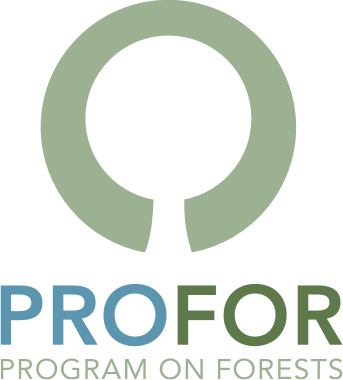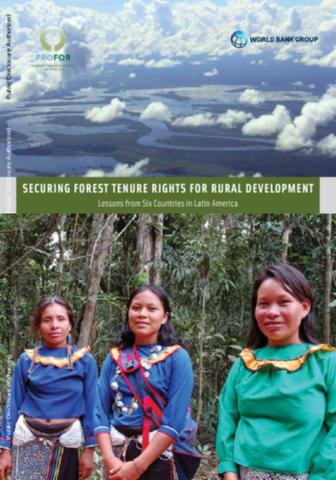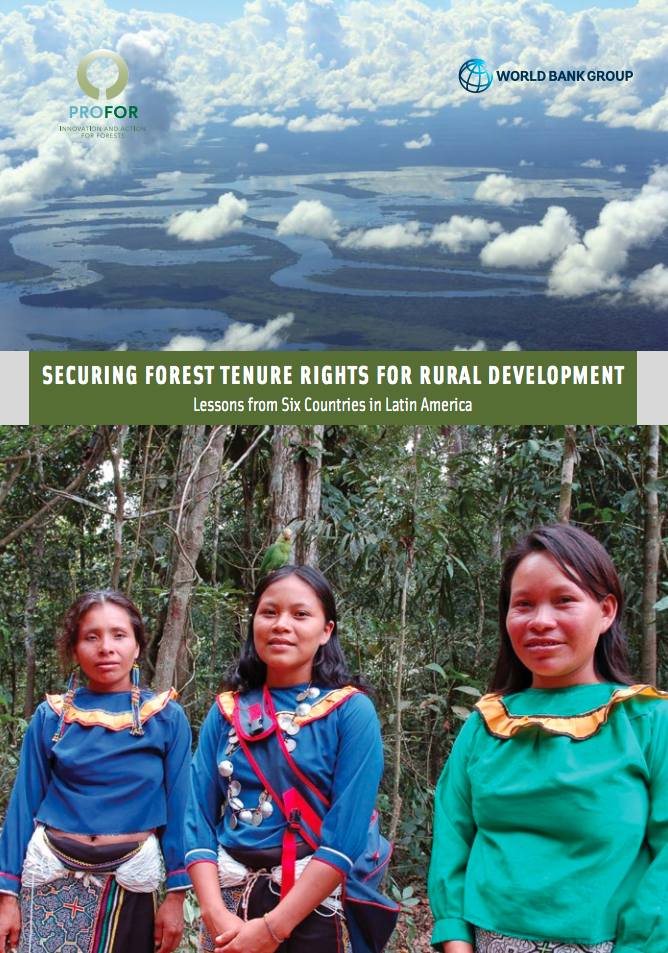Focal point
Location
Well-managed forests have the potential to reduce poverty, spur economic development and contribute to a healthy local and global environment. The Program on Forests (PROFOR) was created in 1997 to support in-depth analysis, innovative processes and knowledge-sharing and dialogue, in the belief that sound forest policy can lead to better outcomes on issues ranging from livelihoods and financing, to illegal logging, biodiversity and climate change. Since 2002, the program has been managed by a core team based at the World Bank, with support from multiple donors. PROFOR encourages a big-picture approach to forest conservation and management in developing countries, with a particular focus on four themes:
- Livelihoods
- Across Sectors
- Financing Sustainable Forest Management
- Governance
Members:
Resources
Displaying 1 - 5 of 9Securing Forest Tenure Rights for Rural Development :
Secure land tenure in rural landscapes is widely recognized as an essential foundation for achieving a range of economic development goals. However, forest areas in low and middle-income countries face particular challenges in strengthening the security of land and resource tenure. Forest peoples are often among the poorest and most politically marginalized communities in their national contexts, and their tenure systems are often based on customary, collective rights that have insufficient formal legal protection.
Securing Forest Tenure Rights for Rural Development: Lessons from Six Countries in Latin America
Secure land tenure in rural landscapes is widely recognized as an essential foundation for achieving a range of economic development goals. However, forest areas in low and middle-income countries face particular challenges in strengthening the security of land and resource tenure. Forest peoples are often among the poorest and most politically marginalized communities in their national contexts, and their tenure systems are often based on customary, collective rights that have insufficient formal legal protection.
Community Forest Management and REDD+
The urgent need to limit anthropogenic
carbon emissions has led to a global initiative to Reduce
Emissions from Deforestation and forest Degradation (REDD+).
But designing national architectures for REDD+ that
integrate local actions on forests with national-level
outcomes and do so effectively, efficiently, and equitably
continues to be challenging. One option to facilitate the
design and implementation of REDD+ is to learn from the
Approaches to Measuring the Conservation Impact of Forest Management Certification
Sustainable forest management (SFM)
certification emerged in the 1980s and 1990s as a mechanism
to promote responsible forest use and as an alternative to
boycotts of forest products amid growing concerns about
forest degradation and destruction. Since then, forest
certification has evolved into a multifaceted market-based
mechanism to promote compliance with sets of ecological,
social, and economic criteria to enhance sustainability.
Integrating Communities into REDD+ in Indonesia
The Government of Indonesia (GOI) is in
the process of designing a national REDD+ mechanism to allow
it to access donor funding in the medium term, and funding
from a potential performance based mechanism in the long
term. This policy brief is focused on the broad question of
how REDD+ can address underlying community issues such as
lack of access to forest land, and does not deal with the
more specific questions of legal and institutional




